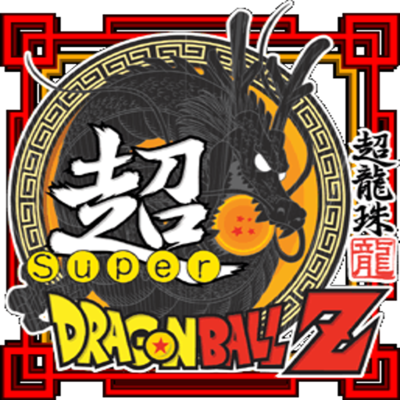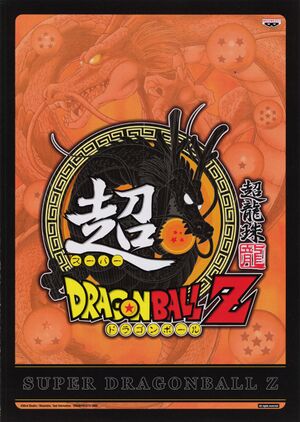("Characters" subheading removed, as navbox is now completed) |
(Add extra paragraph to intro) |
||
| (4 intermediate revisions by the same user not shown) | |||
| Line 2: | Line 2: | ||
|content1= | |content1= | ||
{{Content Box|header=Introduction|content= | {{Content Box|header=Introduction|content= | ||
[[Image: | [[Image:sdbz logo new.png|400px|center]] | ||
<br> | <br> | ||
'''Super Dragon Ball Z''' (SDBZ) is a fighting game based on Akira Toriyama's immensely popular ''Dragon Ball Z'' series, developed by Crafts & Meister | '''Super Dragon Ball Z''' (SDBZ) is a 3D fighting game based on Akira Toriyama's immensely popular ''Dragon Ball Z'' series, developed jointly by Arika and Crafts & Meister, released for arcades on Namco's System 256 in 2005, and ported to the PlayStation 2 in 2006. | ||
Compared to other DBZ games of the time (particularly the ''Budokai'' series), SDBZ combines a more traditional fighting game control scheme with decidedly less traditional gameplay, placing a huge emphasis on freeform movement with open-ended flight mechanics | Compared to other DBZ games of the time (particularly the ''Budokai'' series), SDBZ combines a more traditional fighting game control scheme with decidedly less traditional gameplay, placing a huge emphasis on freeform movement with open-ended flight mechanics, diverse stage designs, complex and powerful space control options, and simple but often brutal close range pressure centred around a unique kind of left-right mixup afforded by the game's flight mechanics. | ||
On top of this unique gameplay style, SDBZ also features an extensive character customization system with its Skill Trees, allowing a player to tailor their character's moves, statistics and abilities for their own playstyle. This combination of wholly unique gameplay and the ability to make a character truly your own makes for a fighting game with unprecedented levels of player freedom and creativity, and one that, as a result, still enjoys a fairly small, but very dedicated competitive following. | |||
}} | }} | ||
Latest revision as of 12:17, 1 May 2022
Super Dragon Ball Z (SDBZ) is a 3D fighting game based on Akira Toriyama's immensely popular Dragon Ball Z series, developed jointly by Arika and Crafts & Meister, released for arcades on Namco's System 256 in 2005, and ported to the PlayStation 2 in 2006.
Compared to other DBZ games of the time (particularly the Budokai series), SDBZ combines a more traditional fighting game control scheme with decidedly less traditional gameplay, placing a huge emphasis on freeform movement with open-ended flight mechanics, diverse stage designs, complex and powerful space control options, and simple but often brutal close range pressure centred around a unique kind of left-right mixup afforded by the game's flight mechanics.
On top of this unique gameplay style, SDBZ also features an extensive character customization system with its Skill Trees, allowing a player to tailor their character's moves, statistics and abilities for their own playstyle. This combination of wholly unique gameplay and the ability to make a character truly your own makes for a fighting game with unprecedented levels of player freedom and creativity, and one that, as a result, still enjoys a fairly small, but very dedicated competitive following.
| In Progress / Completed | To-do |
|---|---|
|
|
| Super Dragon Ball Z (SDBZ) | |
|---|---|
| Version |
PS2 |
| Developers |
Arika, Crafts & Meister |
| Publishers |
Bandai Namco Games (JP, EU), Atari (US) |
| Systems |
PlayStation 2 |
| Release Date |
2006 |
| Online Play |
Delay Based Netcode |
| Community Channels | |



















